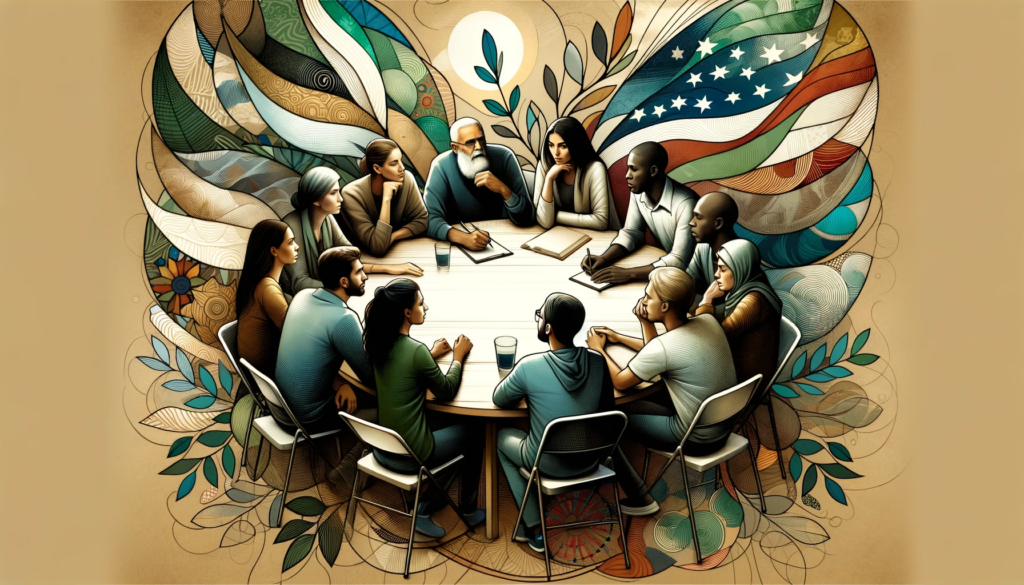
Blog Post
November 15, 2023 by Wes Kilgore, Well Beings and Forbes.com Contributor

In an era marked by escalating anti-Muslim and antisemitic incidents across the United States — from Congressional halls, college campuses and school classrooms to conversations between friends, neighbors and families — the need for civil discourse about the Israeli-Palestinian conflict has never been more pressing. This holiday season, the challenge of navigating a conversation around such a polarizing issue is compounded by current events, which often inflame passions and prejudice. Through empathetic engagement and informed dialogue, we can seek to overcome divisiveness and foster understanding. This article provides a blueprint for such discussions, emphasizing respect and open-mindedness in the face of potentially vehement disagreement.
Encourage Empathy: Start by encouraging participants to express empathy. Understanding the human element and the suffering people are experiencing throughout the region can create a foundational level of respect.
Stay Informed and Acknowledge Differences: It’s helpful if everyone involved in the conversation is briefed on the history and current developments of the conflict. But it’s likely that disagreements on facts may occur. Having access to reliable information from multiple sources such as PBS NewsHour and Washington Week with The Atlantic can help bridge gaps in knowledge and understanding, which is essential for a nuanced and informed discussion.
Active Listening: Practice active listening. This means truly hearing the other person’s perspective without planning your response while they speak..
Question with Curiosity: Ask questions that show genuine curiosity rather than challenging or judging the other person’s stance. This can open up dialogue and provide deeper insights into their viewpoint.
Avoid Blame: Steer clear of language that places blame, as it can escalate tensions. Focus on discussing actions and consequences, rather than assigning fault.
Common Ground: Seek common ground. There may be shared values or goals that form a starting point for agreement.
Respectful Disagreement: Acknowledge that it’s okay to disagree. Civil discourse does not mean consensus, but rather the ability to maintain respect while acknowledging different viewpoints.
Recognize potential Need to Pause: If the conversation gets too heated, it’s important to recognize the signals and consider disengaging tactfully. Suggest a respectful pause by affirming the value of everyone’s perspective, akin to seeking common ground. You might say, “I think we’re getting to a point where our emotions are running high, and it might be best to revisit this conversation later with fresh perspectives.” This approach not only preserves the dignity of all participants, it also leaves the door open for future dialogue.
Decompress Post-Discussion: Allow time for reflection and decompression after the discussion. These conversations can be emotionally taxing.
By applying these techniques, we can hope to bridge gaps in understanding and foster a more empathetic and informed dialogue about this deeply complex and sensitive issue.
Special thanks to PBS NewsHour Student Reporting Labs’ Storymaker for providing the guidelines that served as the framework of this article.

Wes Kilgore is a writer, musician and bon vivant based in the Washington, DC area, and the proud parent of two disturbingly well-adjusted young women and two borderline sociopathic Corgis.
WellBeings.org is a health and wellness resource, not a crisis or suicide response website. If you are in crisis, or experiencing thoughts of suicide, please call or text the 988 Suicide & Crisis Lifeline at 988 or the LGBT National Hotline at (888) 843-4564. The service is free and available 24 hours a day, seven days a week.